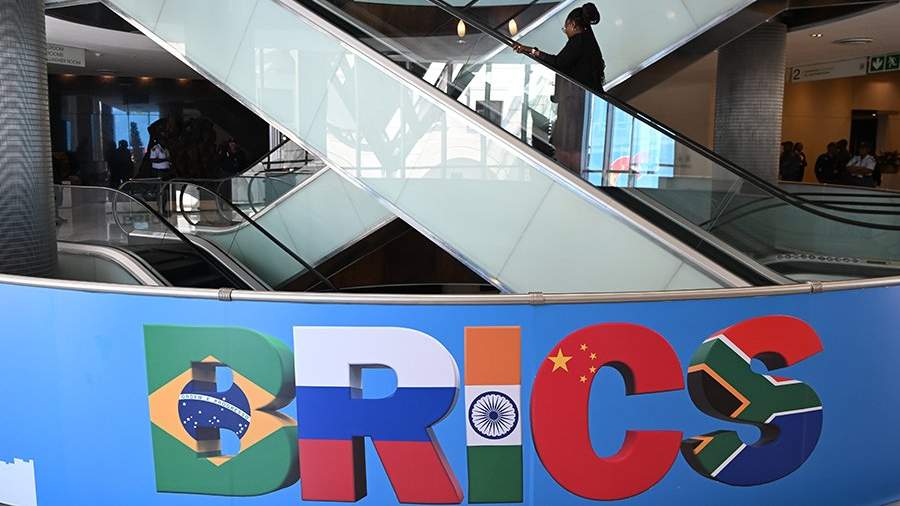
BRICS Plus: Five new members officially join
By Rhod Mackenzie
On January 1, Russia took over the chairmanship of BRICS. Since the beginning of this year, five more countries have joined the association: Egypt, Ethiopia, Iran, Saudi Arabia, and the UAE. Argentina was also expected to join, but its new president, Javier Miley, abruptly changed his foreign policy course. In 2024, there are plans for 200 meetings, conferences, and forums, with the main event scheduled for October in Kazan.
The association is expanding.
Prior to the summit in Johannesburg, Anil Suklal, South Africa's representative to BRICS, announced that over 20 countries from Asia, Africa, and Latin America had officially applied to join the association.
The countries that were part of the forum included Algeria, Bahrain, Egypt, the United Arab Emirates, Saudi Arabia, Sudan, Tunisia, and several African states such as Gabon, the Democratic Republic of the Congo, Nigeria, Senegal, the Union of Comoros, and Ethiopia. Additionally, Bangladesh, Indonesia, and Kazakhstan have expressed interest in joining, while applications from Argentina and Iran are currently under consideration. Turkey has also expressed its readiness to join the forum from 2022. Other countries have expressed an unofficial desire to join the alliance, with Venezuela and Bolivia being the
latest to apply. Venezuelan leader Nicolas Maduro stated that 'BRICS plays a leading role in building a new world and opens a dynamic path to a multipolar world.'
Anil Suklal noted that 'this shows confidence in the work that BRICS has done over the 15 years of its existence.' The BRICS countries account for approximately 30% of global GDP and 18% of global trade, while representing 42% of the world's population.
Consequently, during the South Africa summit, it was decided to invite Argentina, Egypt, Ethiopia, Iran, Saudi Arabia, and the UAE to become full members of BRICS. South African President Cyril Ramaphosa announced that all countries accepted the invitation for membership starting on 1 January 2024.
However, Buenos Aires later changed their minds. During the presidential election campaign, Javier Miley declared that Argentina would not join the club.
The association owes its acronym to British financier Goldman Sachs Jim O'Neill. In one of his analytical articles at the beginning of the 2000s, he united what he considered to be the most promising economies of the world - Brazil, Russia, India and China - into a block that he called BRIC, which is similar to the English word “brick”.
He suggested that these states would become the 'building blocks' for the growth of the world economy. However, the financier did not anticipate that these countries would form an alliance to coordinate political and economic steps.
In 2011, South Africa joined the association, and the forum became known as BRICS. Three years later, the countries established the New Development Bank (NDB) with an authorized capital of $100 billion. The NDB is intended to finance infrastructure projects and other programs aimed at maintaining sustainable growth in developing economies.
It has become an alternative to the World Bank and the IMF, in whose policies Western countries usually play the main role. In 2021, the NDB hosted Uruguay, the UAE, Bangladesh and Egypt.
In the summer of 2022, Russian President Vladimir Putin stated that BRICS is working towards creating a single currency to reduce the dominance of the US dollar in the global economy. Additionally, the group is developing a multilateral payment system similar to SWIFT to ensure secure trade settlements and counteract US sanctions pressure.
In his article titled “An anti-Western bloc is emerging, more powerful than ever before” (2022), the former editor-in-chief of Der Spiegel magazine stated that BRICS is much stronger than the G7. According to him, the G7 is a phenomenon of the last century, while BRICS is a discovery of the 21st century.
Natalya Eremina, Doctor of Political Sciences and Professor at St. Petersburg State University, shares this view.
BRICS is an international association that is emerging as a new global power. The member countries always strive for consensus and dialogue. BRICS challenges the traditional decision-making centres with new global forces. The traditional centres aimed to control the largest transnational corporations and redistribute energy resources, while also taking over financial flows.
The political scientist noted in an interview with Izvestia that the West initially underestimated BRICS, but their perspective has since changed.
Investment advisor and founder of the University of Investments, Yulia Kuznetsova, shares a similar position. She noted that the International Monetary Fund calculated that in 2020, BRICS caught up with the G7 in terms of economic growth.
Furthermore, by 2028, BRICS countries are projected to have a share of economic growth exceeding 33.6%, while the G7 will have 27.8% growth. In a conversation with Izvestia, the expert explained that India and China are the leaders of economic growth. It is understandable that other countries also want to join BRICS.
In a conversation with Izvestia, Artem Deev, the head of the analytical department at Amarkets, suggested that the most promising areas of cooperation between the BRICS states would be raw materials, food, pharmaceuticals, and IT.
Deev believes that the economies of the participating countries have received a significant boost due to the active trade within the BRICS.
The total exports of the participating countries amount to approximately $260 billion. The addition of other countries to the economy may not result in a multiple growth of economies, but it will create new opportunities for domestic trade,” the specialist concluded.
